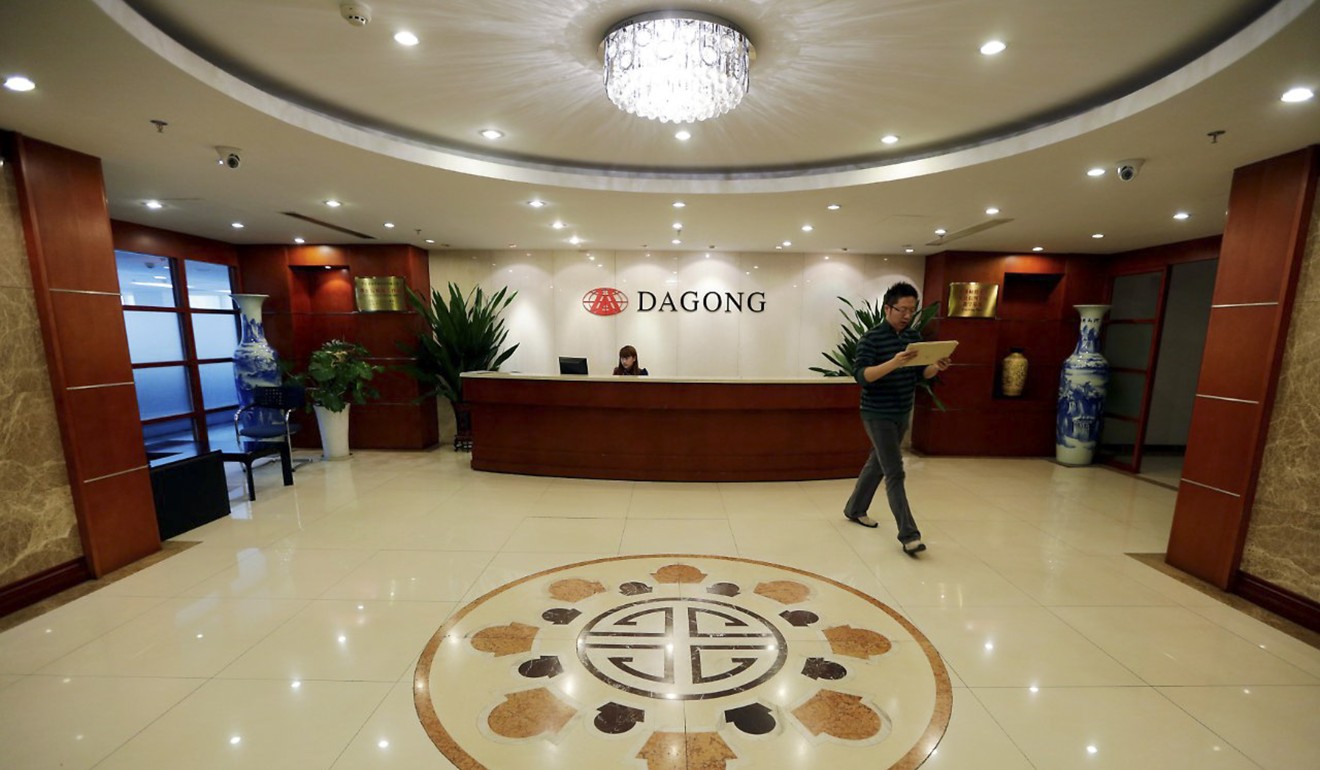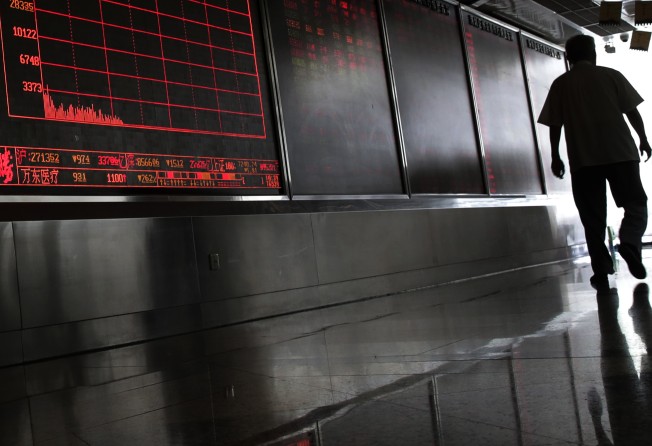
Dagong’s fall from grace could prove fatal to Chinese firm’s dream of shaking up global ratings market
Ban in wake of ‘cash-for-ratings’ investigation deals serious blow to credibility and is likely to fuel foreign scepticism about trustworthiness of Chinese domestic market

When Chinese rating firm Dagong released its first sovereign credit risk report in 2010, it aspired to become a leader in a market long dominated by the big three US groups Standard & Poor’s, Moody’s and Fitch.
Eight years on, not only has Dagong failed to gain market share from its competitors, it has now been suspended from the Chinese market for a year after it was caught effectively selling good ratings to bond issuers.
The firm’s fall from grace follows in the wake of the Chinese government’s efforts to improve the credibility of its domestic financial markets and eliminate the widespread – and hard to shift – foreign perception that they operate like a “casino” that favours domestic players.
International investors have long had concerns over the credibility of Chinese rating agencies, according to Andrew Collier, managing director at Orient Capital Research in Hong Kong.
“I am not surprised that Dagong was suspended as most investors knew that its credit ratings were suspiciously favourable,” Collier said.
“The real question is whether investors can trust any credit ratings in China. There are so many political factors – leaving aside outright corruption through consulting contracts – that it is unlikely ratings will become realistic any time soon unless foreign firms are allowed direct entry.”
China is opening up its domestic bond market to allow foreign credit rating agencies to run their own operations in the country.
For the previous two decades, restrictions on foreign ownership had required foreign rating agencies to work with a Chinese partner.
Dagong’s initial intention, according to its public remarks, was to shake up the international ratings market and challenge Western firms’ dominance, after the failure of the big three to detect problems with subprime US mortgages that eventually led to the 2008 financial crisis.
But the damage caused by its own errors may have ended these hopes.
Earlier this month, Chinese regulators said the Beijing-based rating agency had broken the rules by providing consulting services to firms it was rating and charging high fees that compromised its independence.
The investigation also found that it had provided false statements and untrue information during the investigation, adding that its actions had a “very negative” impact on the market.

A site inspection by the watchdog found other serious problems in the rating agency, including “chaotic internal governance”, “hiring executives without professional qualifications” and the “loss of original documents for some rating services”.
Last week, Dagong was forced to postpone the release of new ratings for 42 countries, which it claimed were more reliable than those by other agencies because they focused on each country’s credit state and governance ability by examining “aggregate credit relations encompassing all major economic sectors”.
Dagong sought to be contrarian from the beginning, rating the US government’s creditworthiness below China’s.
In January this year, Dagong cut the local and foreign currency sovereign ratings of the United States to BBB+ from A-, citing an increasing reliance on debt in the world’s largest economy.
Currently Fitch and Moody’s Investors Service both give the US their top AAA ratings, while S&P has assigned a slightly lower grade of AA+ since 2011.
By contrast, Dagong gives China a AAA rating, compared with A+ ratings from S&P’s and Fitch, and A1 from Moody’s.
Dagong’s ambitions received their first setback in 2010, when the company’s application to set up shop in the US was rejected by the Securities and Exchange Commission.
The SEC said Dagong’s proposal to have China’s securities regulator vet and broker all correspondence between the SEC and the Chinese rating firm did not comply with US federal securities law.
Dagong accused the US securities regulator of discriminating against Chinese rating agencies.
Dagong did win approval from European regulators and established an office in Milan in 2013. Additionally it also gained a licence from the Securities & Futures Commission to operate in Hong Kong and hired staff from rival agencies as it sought to expand.
Dagong, which is estimated to have a 20 per cent market share in China, has been rating Chinese corporate bonds since 1994.
As of June, 97 per cent of bonds in the trillion-dollar Chinese corporate bond market are rated AA and above, according to the National Association of Financial Market Institutional Investors, the watchdog for the country’s internet banking market.
Dagong did not respond to calls and emails seeking comment.